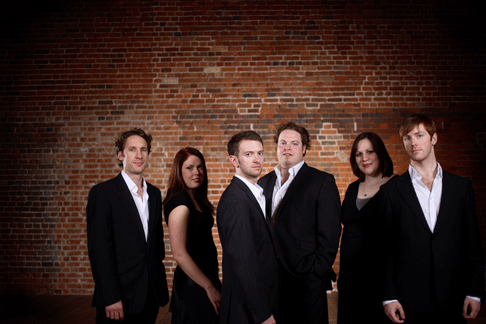29 Oct 2009
Ned Rorem premiere at Oxford Lieder Festival
Ned Rorem's Evidence of Things Not Seen received its European premiere at the Oxford Lieder Festival.

Ned Rorem's Evidence of Things Not Seen received its European premiere at the Oxford Lieder Festival.
It’s strange that Rorem is relatively unknown outside the US, because there have been so many excellent recordings. There’s no excuse, Perhaps though this Oxford performance, by the Princes Consort, will put things right.
Evidence of Things Not Seen is a collection of 36 songs that flow together to form a whole greater than its parts. The first group of songs are optimistic, open ended. Rorem calls them “Beginnings”. “From whence cometh song?” is the very first line. The same questioning reappears throughout the cycle, expressed in Rorem’s characteristic rising and falling cadences.
“Middles” (the middle section) explores ideas more deeply, rather like development in symphonic form. There are some very strong songs here, such as ..I saw a mass, from John Woolman’s Journal. Woolman was a Quaker, and Quaker values infuse the whole 80 minute sequence. Indeed, the the title Evidence of Things Not Seen comes from William Penn. Rorem’s cadences are light quiet breathing, the way Quakers think things through in silent contemplation. Two songs to poems by Stephen Crane, The Candid Man and A Learned Man, provide counterpoint. The candid man blusters, using violence to impose his will.
Rorem chooses his texts carefully. Middles ends with a song to an 18th century hymn text by Thomas Ken which leads into Julien Green’s He thinks upon his Death. W H Auden jostles with Robert Frost, Colette with A E Housman. Mark Doty and Paul Monette write poems referring to AIDS. Jane Kenyon’s The Sick Wife poignantly describes a woman lost , still young, to some illness that keep her alive but barely sensate. In its own simple, direct way it connects to the final song, in which Penn reflects on the Bible. “For Death is no more than the Turning of us over from Time to Eternity”. Whatever the Evidence of Things Not Seen may be, following the journey in a performance as good as this is a moving experience.
The Oxford Lieder Festival often introduces performers and repertoire before they become mainstream. That’s why, for a small festival, it’s cutting edge, and one of the best ways to keep a finger on the pulse of what’s happening in song.
 The Prince Consort
The Prince Consort
The Prince Consort are something of an Oxford Lieder discovery, although they have also appeared at the Wigmore Hall. This is a lively, flexible ensemble which brings together some of the most exciting young singers around. Many are already quite high profile — some have been heard at the Royal Opera House, Glyndebourne and Salzburg. They were represented tonight by the founder, the pianist Alisdair Hogarth, and the singers Anna Leese, Jennifer Johnston, Nicholas Mulroy and Jacques Imbrailo (a former Jette Parker artist).
Their fresh, vivacious approach suits Rorem’s music well. The Prince Consort have just released a recording of Rorem’s On an Echoing Road. on the audiophile label Linn. It’s good. That cycle includes many songs showing the influence of English composers like Ralph Vaughn Williams and Roger Quilter, so it’s a good choice for the English market. The audience at Oxford was sparse, perhaps because those who don’t know Rorem assume that if he’s modern and American they might not like him. But Rorem is steeped in the European tradition and was associated with poets like W H Auden. Perhaps now England will be aware how Rorem has rejuvenated the genre of English song.
Anne Ozorio
[Note: The recording Ned Rorem - On an echoing road by Prince Consort is available for download here.]